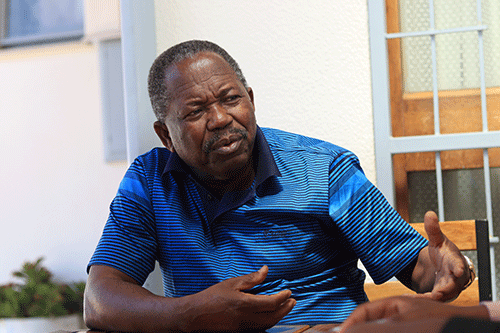Defence minister and Swapo vice presidential hopeful Frans Kapofi says the issue of genocide remains a thorn in Namibia’s flesh and must be addressed in earnest, expeditiously.
Kapofi was reacting to recent reports that Germany is hellbent to shove the disputed N$18 billion genocide reparation offer down Namibia’s throat despite the latter’s push for fresh talks.
Germany massacred an estimated 80 000 Ovaherero and Nama at the turn of the 20th century.
In September last year, Kapofi tabled a motion on the genocide reparation pact between Namibia and Germany in the National Assembly.
Kapofi, while speaking to New Era during an interview that covered a plethora of issues including the infamous Lubango dungeons, youth unemployment, housing and land reform, branded Germany’s posture as unfortunate.
“From the German government’s point of view, the negotiations for the joined declaration with Namibia have been finalised, even though talks about specific modalities of its implementation are continuing,” the government wrote in response to written questions submitted by Sevim Dagdelen, a member of Germany’s federal parliament from the socialist Left Party.
He hastened to point out that Germany has not formally communicated its new stance to Namibia.
“It is unfortunate that the Germans are now apparently saying they are not willing to negotiate. I have not seen the official correspondence [from them]. I only read it [in the media]. I think this is an issue that is being handled by our Vice President [Nangolo Mbumba] and the Cabinet committee that is under and through him of course to the President.
But one thing is clear: “That [reparation negotiations] is an unfinished job that has to be finished. It is something that we need to address as a country. We cannot ignore it. We will probably be receiving a formal response. That kind of reaction that I saw in the newspapers was not as a result of us communicating to the Germans. I don’t think they were reacting to us. I think it’s more of an internal thing in Germany itself.”
“It is a sign of arrogance that the German government simply ignores the massive criticism from Namibia’s parliament and the outrage of the descendants of the victims and leaves Namibia to deal with it,” Dagdelen is quoted by Deutsche Welle, a German news outlet.
Government, Kapofi said, will pronounce itself on the way forward as soon as their German counterparts officially communicate.
Last year, Namibia and Germany struck a draft deal worth N$18 billion as reparation for the former’s colonial-era genocide in Namibia.
The amount is to be rolled out over 30 years.
Many in Namibia, including all opposition parties in parliament as well as traditional leaders of the affected communities, rejected the deal, branding it an insult.
Namibia’s President, Hage Geingob too rued the amount as insufficient to repair the wounds.
He is, however, of the view that negotiations should continue so as to avoid losing the gains made through protracted talks spanning across five years.
Six years ago, both governments entered into negotiations about a formal German apology for the colonial-era killings.
Namibia has unfinished historical business of its own.
While calls for a probe into the infamous Lubango dungeons have been met with sheer rejection over the years, it has not stopped survivors from airing their grievances.
The dungeons refers to the disposal of Swapo members by the party in Lubango, where the then liberation movement had a base during the struggle for Namibia’s independence, on accusations of being South African spies.
Asked about this dark part of history, Kapofi, one of Swapo’s political commissars and chief of staff at various army and refugee bases in exile, thought Namibians had reconciled and moved on.
“If people feel that the party needs to apologise, I don’t know what more [can be done] and in what form. That is really something the party itself has to deal with. It is not for me to say. It is for the aggrieved and those who are leaders [Swapo] to address the issue if there is a need,” he stated.
Kapofi is adamant that the party remains blameless, saying, “it is disingenuous to say there was no infiltration by South Africa’s apartheid forces into Swapo military operations during exile. In any war, however, there are casualties.
“We should also not necessarily just say everybody who was caught up in that crossfire was innocent. There might have been some innocent people, and probably a good number of them might have been victims of the circumstances. But I thought we have reconciled,” he said.



